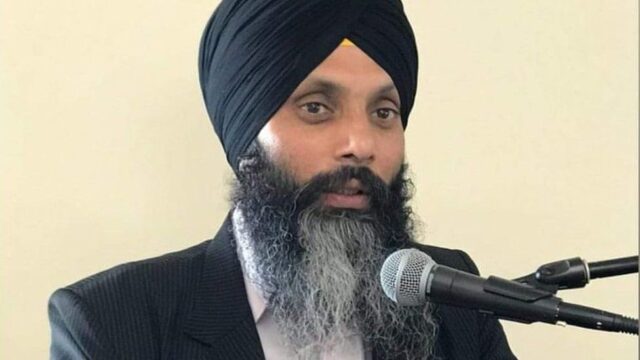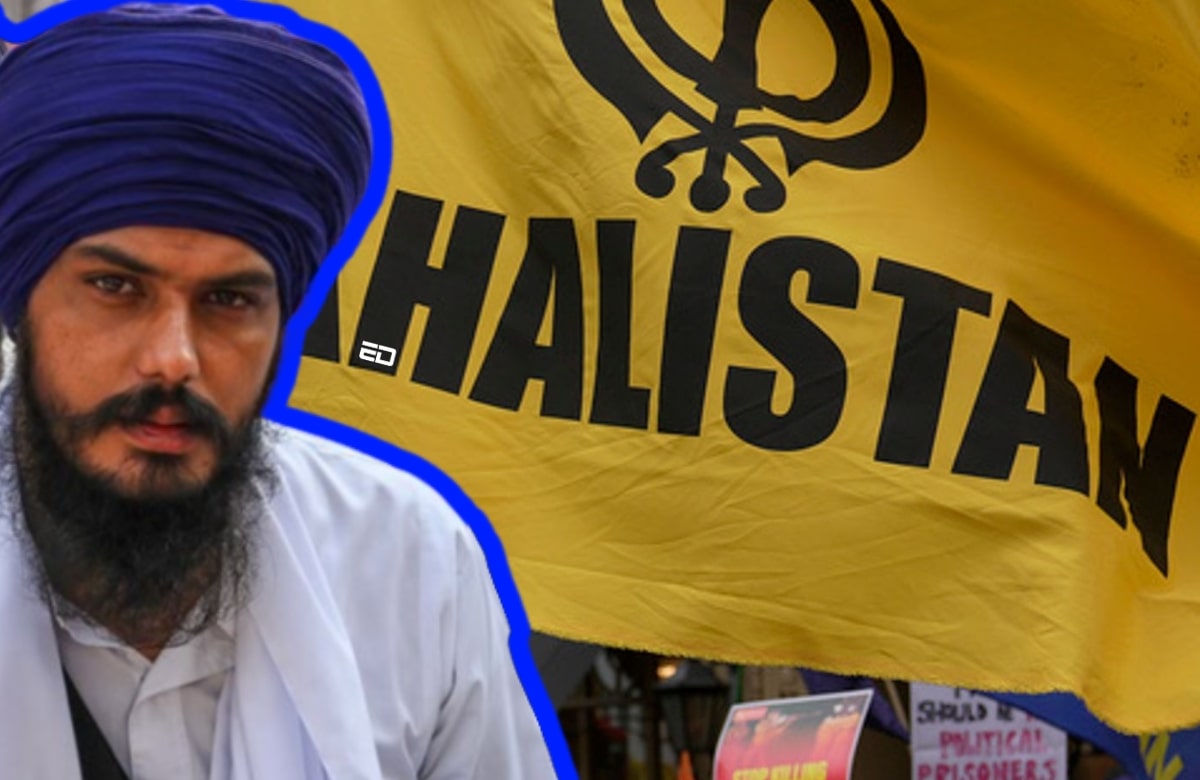When the Canadian Prime Minister accused India of being involved in a Sikh separatist Hardeep Singh Nijjar’s death, it caused a big argument between India and Canada. This argument has highlighted the problem of Khalistan terrorism again, not just in Canada, but all over the world.

Khalistani extremists are a small part of the Sikh community living outside India. Even though they are not many in number, they are very loud, violent, and forceful. This makes it seem like they are a big group, having a strong presence in things like society, culture, religion, and politics.
Khalistan Extremism In Canada
In a shocking display of hatred, a Hindu temple in Brampton was vandalized with anti-India graffiti, causing anger and concern among the Indian community. Similar incidents occurred in February when the Ram Mandir in Mississauga was also targeted with anti-India messages.
The Consulate General of India in Toronto requested Canadian authorities to promptly investigate these hateful acts and bring the culprits to justice. Unfortunately, in April, the BAPS Swaminarayan temple in Windsor, Ontario, suffered the same kind of hateful graffiti.
Recent events, like the public appearance and provocative speech by Gurpantwant Singh Pannun, a prominent figure associated with Khalistani separatism, during a Khalistan referendum event in Canada, raised serious worries about the situation in the country.
Canada is increasingly becoming a center for anti-India and anti-Hindu activities, as well as a safe haven for individuals with extremist beliefs. India has repeatedly urged the Canadian government, led by Justin Trudeau, to take strong action against these extremist activities.
Also Read: Why Is Alleged Khalistani Supporting Canadian Rapper Shubh Controversial? Kohli, Pandya Unfollow Him
Khalistan Terrorism A Global Threat?
India and the UK have a strong connection, but Indian officials often express concern about Sikh activism in the UK. Earlier this year, when Sikh protestors damaged the Indian High Commission in London during a demonstration, India’s Prime Minister Modi expressed his concerns.
India keeps telling the UK to deal with what they call “extremism,” but in the UK, most support for Khalistan, a Sikh separatist movement, is peaceful. Sometimes, there’s confusion between India and the UK about what’s considered extreme and what’s just expressing political opinions.
In the US as well, there’s a problem of Khalistan terrorism. The US shared information with Canada about the killing of a Sikh separatist named Hardeep Singh Nijjar. The US told Canada they didn’t know about the plot in advance, but if they did, they would have warned Canada because it’s their duty. The FBI even visited Sikh separatist groups in the US and warned them about potential threats to their lives.
Now, the Indian government has told its investigators to find all Khalistani terrorists in the US, UK, Canada, and Australia and cancel their OCI cards to stop them from entering India, in a stern action to stop Khalistan extremism.
What Is The Khalistan Movement?
Khalistan is a name for a proposed Sikh state that some Sikhs want to create. They want this state to include the Indian state of Punjab and other parts of northern India where Punjabi is spoken, so they can have their own Sikh nation.
This idea started gaining popularity in the 1970s and 80s in India but then became less popular. However, in recent years, Sikhs living outside India have started supporting the idea again. The idea of Khalistan is based on Sikhism, which is a religion that began in the 15th century when northern India was ruled by the Mughals.
Back in 1952, the Prime Minister of India at the time, Jawaharlal Nehru, said he would not agree to create a Punjabi-speaking state. This caused disagreements between Sikhs and Hindus. Eventually, in 1966, the state of Punjab was created, with Chandigarh as its capital.
In the 1970s and 80s, the Khalistan movement started again among Sikhs in India, and it became an armed rebellion, led by a Sikh rebel leader named Jarnail Singh Bhindranwale.
Recently, some Sikh communities outside India, especially in Canada, the United Kingdom, the United States, and Australia, have shown support for the Khalistan movement.
It’s important for the international community to think carefully about what might happen if this idea continues to grow because it could cause problems for peace and stability in the region. Balancing the freedom of expression with dealing with extreme ideas is a difficult challenge, and finding the right way to do it is important to stop more radicalization and violence.
Image Credits: Google Images
Feature image designed by Saudamini Seth
Sources: Al Jazeera, Firstpost, BBC, Mint
Find the blogger: Palak Dogra
This post is tagged under: khalistani, khalistan, canada, india, jaishankar, khalistan in canada, sikhism, sikh separatists, khalistan movement, hardeep singh nijjar, justin trudeau, khalistan extremism, khalistan in US, khalistan in UK, Gurpantwant Singh Pannun, global threat, terrorism, indians
Disclaimer: We do not hold any right, copyright over any of the images used, these have been taken from Google. In case of credits or removal, the owner may kindly mail us.































